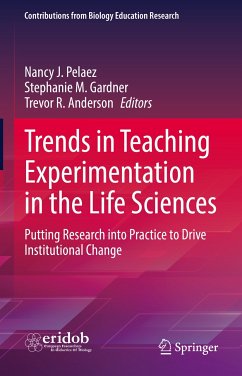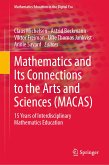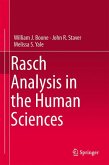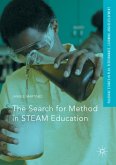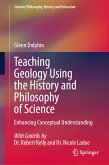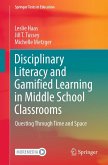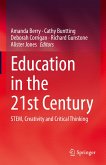Trends in Teaching Experimentation in the Life Sciences (eBook, PDF)
Putting Research into Practice to Drive Institutional Change
Redaktion: Pelaez, Nancy J.; Anderson, Trevor R.; Gardner, Stephanie M.

Alle Infos zum eBook verschenken


Alle Infos zum eBook verschenken

Trends in Teaching Experimentation in the Life Sciences (eBook, PDF)
Putting Research into Practice to Drive Institutional Change
Redaktion: Pelaez, Nancy J.; Anderson, Trevor R.; Gardner, Stephanie M.
- Format: PDF
- Merkliste
- Auf die Merkliste
- Bewerten Bewerten
- Teilen
- Produkt teilen
- Produkterinnerung
- Produkterinnerung

Hier können Sie sich einloggen

Bitte loggen Sie sich zunächst in Ihr Kundenkonto ein oder registrieren Sie sich bei bücher.de, um das eBook-Abo tolino select nutzen zu können.
This book is a guide for educators on how to develop and evaluate evidence-based strategies for teaching biological experimentation to thereby improve existing and develop new curricula. It unveils the flawed assumptions made at the classroom, department, and institutional level about what students are learning and what help they might need to develop competence in biological experimentation.
Specific case studies illustrate a comprehensive list of key scientific competencies that unpack what it means to be a competent experimental life scientist. It includes explicit evidence-based…mehr
- Geräte: PC
- ohne Kopierschutz
- eBook Hilfe
- Größe: 10.77MB
![Mathematics and Its Connections to the Arts and Sciences (MACAS) (eBook, PDF) Mathematics and Its Connections to the Arts and Sciences (MACAS) (eBook, PDF)]() Mathematics and Its Connections to the Arts and Sciences (MACAS) (eBook, PDF)121,95 €
Mathematics and Its Connections to the Arts and Sciences (MACAS) (eBook, PDF)121,95 €![Rasch Analysis in the Human Sciences (eBook, PDF) Rasch Analysis in the Human Sciences (eBook, PDF)]() William J. BooneRasch Analysis in the Human Sciences (eBook, PDF)113,95 €
William J. BooneRasch Analysis in the Human Sciences (eBook, PDF)113,95 €![The Search for Method in STEAM Education (eBook, PDF) The Search for Method in STEAM Education (eBook, PDF)]() Jaime E. MartinezThe Search for Method in STEAM Education (eBook, PDF)19,95 €
Jaime E. MartinezThe Search for Method in STEAM Education (eBook, PDF)19,95 €![Teaching Geology Using the History and Philosophy of Science (eBook, PDF) Teaching Geology Using the History and Philosophy of Science (eBook, PDF)]() Glenn DolphinTeaching Geology Using the History and Philosophy of Science (eBook, PDF)105,95 €
Glenn DolphinTeaching Geology Using the History and Philosophy of Science (eBook, PDF)105,95 €- -24%11
![Disciplinary Literacy and Gamified Learning in Middle School Classrooms (eBook, PDF) Disciplinary Literacy and Gamified Learning in Middle School Classrooms (eBook, PDF)]() Leslie HaasDisciplinary Literacy and Gamified Learning in Middle School Classrooms (eBook, PDF)48,95 €
Leslie HaasDisciplinary Literacy and Gamified Learning in Middle School Classrooms (eBook, PDF)48,95 € ![Education in the 21st Century (eBook, PDF) Education in the 21st Century (eBook, PDF)]() Education in the 21st Century (eBook, PDF)105,95 €
Education in the 21st Century (eBook, PDF)105,95 €![Disciplinary Literacy and Gamified Learning in Elementary Classrooms (eBook, PDF) Disciplinary Literacy and Gamified Learning in Elementary Classrooms (eBook, PDF)]() Leslie HaasDisciplinary Literacy and Gamified Learning in Elementary Classrooms (eBook, PDF)48,95 €
Leslie HaasDisciplinary Literacy and Gamified Learning in Elementary Classrooms (eBook, PDF)48,95 €-
-
-
Specific case studies illustrate a comprehensive list of key scientific competencies that unpack what it means to be a competent experimental life scientist. It includes explicit evidence-based guidelines for educators regarding the teaching, learning, and assessment of biological research competencies. The book also provides practical teacher guides and exemplars of assignments and assessments. It contains a complete analysis of the variety of tools developed thus far to assess learning in this domain.
This book contributes to the growth of public understanding of biological issues including scientific literacy and the crucial importance of evidence-based decision-making around public policy. It will be beneficial to life science instructors, biology education researchers and science administrators who aim to improve teaching in life science departments.
Chapters 6, 12, 14 and 22 are available open access under a Creative Commons Attribution 4.0 International License via link.springer.com.
Dieser Download kann aus rechtlichen Gründen nur mit Rechnungsadresse in A, B, BG, CY, CZ, D, DK, EW, E, FIN, F, GR, HR, H, IRL, I, LT, L, LR, M, NL, PL, P, R, S, SLO, SK ausgeliefert werden.
- Produktdetails
- Verlag: Springer International Publishing
- Seitenzahl: 561
- Erscheinungstermin: 11. Mai 2022
- Englisch
- ISBN-13: 9783030985929
- Artikelnr.: 64004285
- Verlag: Springer International Publishing
- Seitenzahl: 561
- Erscheinungstermin: 11. Mai 2022
- Englisch
- ISBN-13: 9783030985929
- Artikelnr.: 64004285
- Herstellerkennzeichnung Die Herstellerinformationen sind derzeit nicht verfügbar.
